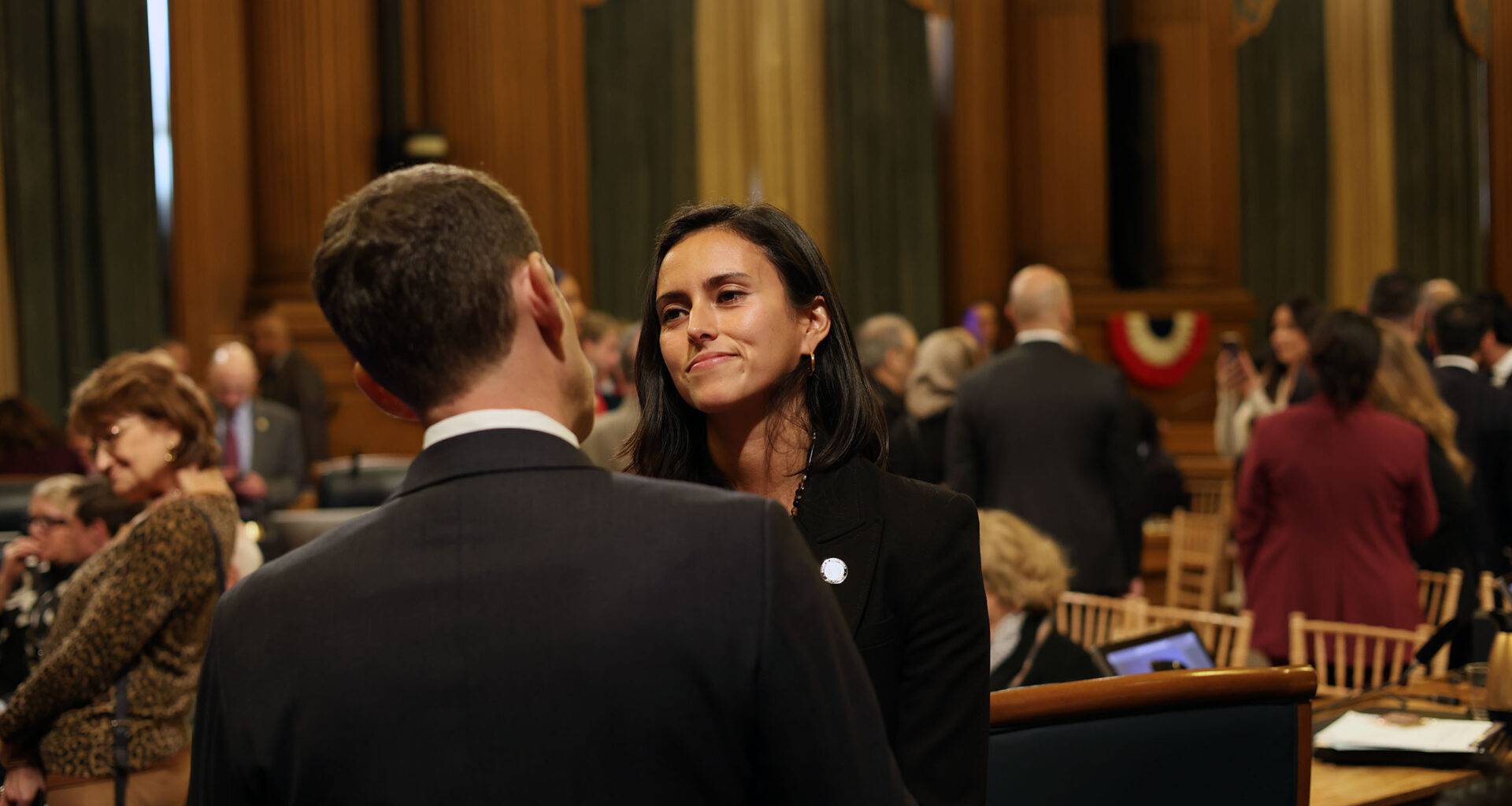San Francisco Supervisor Jackie Fielder announced on Tuesday that she would call for a hearing to investigate the process that led Mayor Daniel Lurie’s office to award a $5.9 million contract to a well-connected tech firm that city staff said was unqualified to overhaul the city’s permitting system.
The 13-year-old tech firm OpenGov won a contract to lead the city’s permit reform effort despite city staff writing that its proposal had “gaps so significant” that it “shouldn’t be considered” for the task. OpenGov’s co-founder and former chair, CEO and an advisory board members were all donors to either Lurie’s former foundation or his mayoral campaign.
Fielder took note of the ties in her announcement.
“My concerns around the OpenGov contract boil down to the quality of the contract, the costs, the process by which it was procured and the preexisting relationships of OpenGov with the mayor’s former nonprofit, Tipping Point,” said Fielder at today’s Board of Supervisors meeting. Fielder is also the chair of the Government and Audit Oversight Committee.
The San Francisco Standard first reported on Oct. 15 that Ned Segal, Lurie’s policy chief for housing and economic development, awarded the contract to OpenGov despite another company offering what staffers found to be a superior product at a lower cost.
The Standard noted that Segal “unilaterally” overruled staff recommendations in awarding the contract to OpenGov. In a July report with input from 16 technical city workers, Clariti, OpenGov’s competing bidder, was deemed “the most suitable of the 3 products,” earning an average score of 4.42 out of 5. OpenGov, by contrast, scored 2.88.
Both Lurie and Segal defended the choice. Lurie said in an Oct. 15 town hall meeting: “I am hoping and asking you all to be with me on this … I know it’s going to be a pain in the butt. I’m sure all these transitions always are, but I’m telling you, it’s going to be worth it.”
Lurie did not directly comment on the matter or answer whether he stood by his deputy. His office did not immediately respond to a request for comment on Tuesday, but last week cited OpenGov’s “track record.”
OpenGov would lead Lurie’s PermitSF initiative, which the mayor launched earlier this year to streamline and centralize the city’s permitting process. PermitSF has an ambitious goal of rolling out its first wave of improvements by February 2026.
The earliest possible date for Fielder’s hearing is late November or December, according to her office, meaning her office would have a very limited window in which to take any action. The February 2026 goal may also explain why Lurie’s office was quick to find a vendor.
OpenGov’s chief competitor has had issues with its existing contracts Clariti has been working with Public Works since 2022 to implement an online permitting system but has repeatedly missed deadlines, according to the Standard. The system was supposed to be ready by this January, but it has yet to be implemented.
Fielder has also raised questions about the bidding process, which she found unusual: The city used a “request for information” to gather input from interested parties instead of a “request for proposal,” which would have formally evaluated bids.
Lurie’s office, for its part, cited Chapter 21.30 of the administrative code, which lets the city buy tech services on a faster but less transparent basis than its usual procurement process.
The OpenGov contract is currently a $5.9 million, one-year contract that started on Oct.1.
Several OpenGov officials have ties to the mayor and his former nonprofit. Katherine August-deWilde, an OpenGov’s advisory board member, is a major donor and board member of Tipping Point community, the foundation Lurie led as CEO and later as board chair until 2023.
August-deWilde and her husband also donated $60,000 to support Lurie’s 2024 campaign and $100,000 to the new mayor’s inauguration.
Similarly, OpenGov co-founder Joe Lonsdale and CEO Zac Bookman were both major donors to Tipping Point. Bookman also contributed $500 to Lurie’s mayoral campaign.
“Any one of these circumstances of this contract award on their own are eyebrow-raising,” Fielder said, “but combined they are cause for serious concern.”

